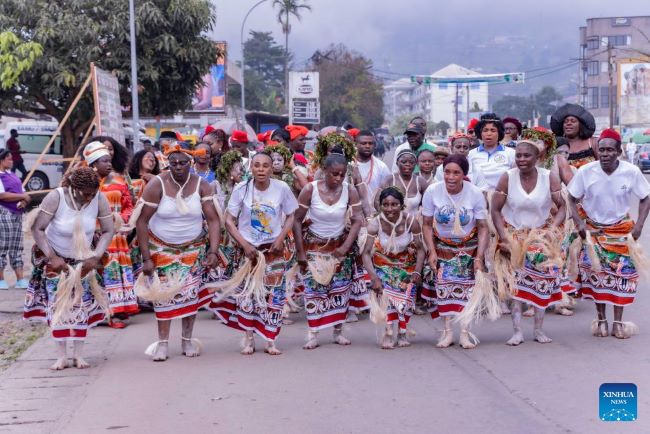Privacy Overview
This website uses cookies so that we can provide you with the best user experience possible. Cookie information is stored in your browser and performs functions such as recognising you when you return to our website and helping our team to understand which sections of the website you find most interesting and useful.


















10, January 2017
Anglophone Problem: Former Governor David Abouèm à Tchoyi sounds a note of caution to Biya 1
The former governor of the South West and North West region, David Abouèm à Tchoyi has sounded a note of caution to President Biya and his Beti Ewondo gang, that the Anglophone crisis may become a more dangerous version of Boko Haram. The respected former civil administrator who served as governor of the two Anglophone regions noted recently that “One can remain deaf to appeals, close one’s eyes to the obvious, clash in denial, or even think like the first Vice Chancellor of the Federal University of Cameroon who, answering this question in 1964, had this memorable phrase: “There is no Anglophone problem; All Anglophones learn French very quickly “. But it is all of us who, very quickly, will be able to be caught up by the realities, warned the experienced administrator.
David Abouèm à Tchoyi pointed out that the Anglophone problem is not about vain threats and rhetoric that Cameroon is one and indivisible. The former governor observed that it is not a problem of living together. He revealed that Southern Cameroons as a nation welcomed thousands of French Cameroonians who escaped indigenous and forced labor from the French colonialists and other French Cameroonians who were involved in the UPC struggle for independence including thousands of men and women from African countries who lived and prospered there in harmony.
So, what’s the problem? How does it arise? Why these recurring eruptions in these two regions? David Abouèm à Tchoyi said there is obviously, an Anglophone problem in Cameroon. “This is not a problem between Anglophones and Francophones: there has never been a conflict between compatriots on both shores of the Mungo, on the basis of linguistic differences. It is not the rejection of what comes from Francophone Cameroon: no community in the North West or South West has ever opposed the practice in its territory of Bassa, Beti, Bamileke, Peuhl, Sawa … or other communities of the former East Cameroon.
David Abouèm à Tchoyi indicated that six facets come to mind:
1- Criticism of the centralized state.
2- The transfer of the decision-making centers to Yaoundé, far from the populations and their problems.
3- Failure to respect commitments to equitably take into account the institutional, legal and administrative cultures and traditions inherited from the former administering powers.
4- Non-compliance with the solemn promises made during the referendum campaign.
5- The change of the name of the State: replacement of “the United Republic of Cameroon” by “the Republic of Cameroon”.
6- Non-respect of bilingualism in the public sector, although the Constitution makes French and English two official languages of equal value.
The former has been making public a better understanding of the Anglophone problem to his French audience.
By Rita Akana with files from CIN